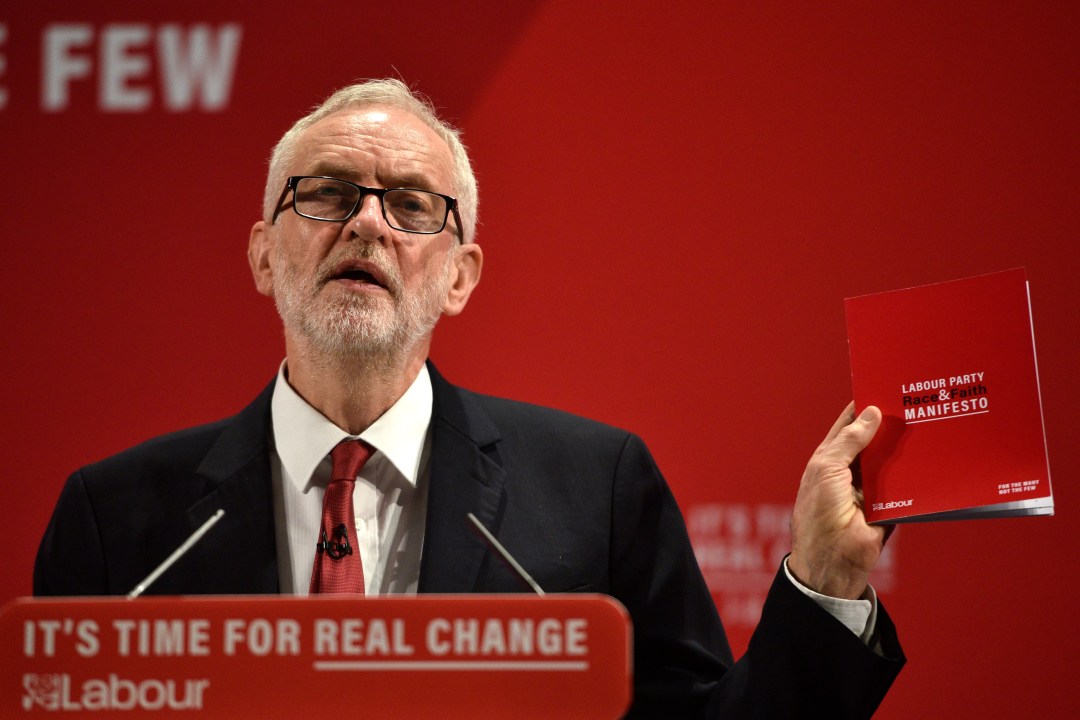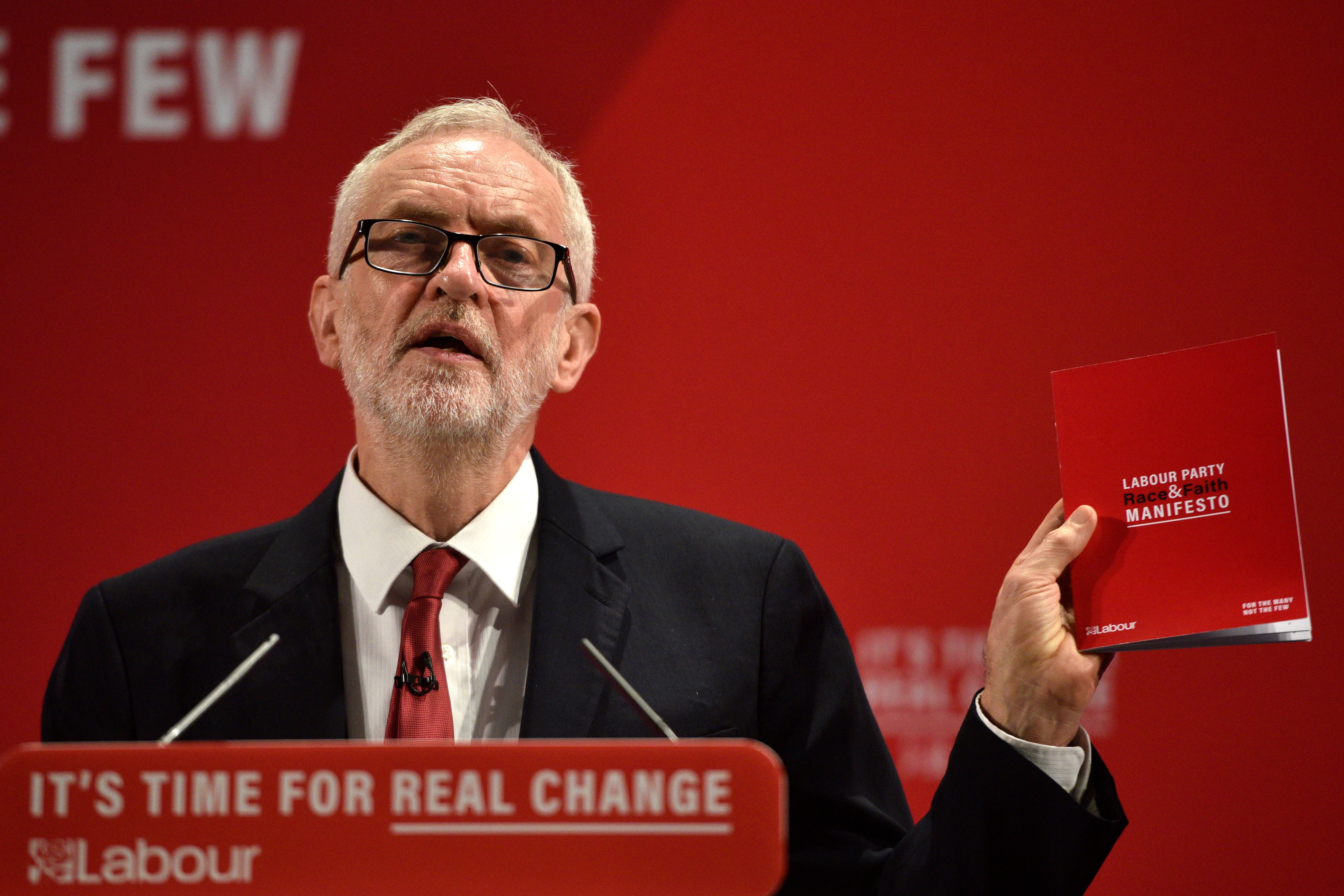Labour launched its ‘Race & Faith Manifesto’ earlier today amid a storm of criticism over the party’s anti-Semitism problem. The latest person to condemn Jeremy Corbyn is the chief rabbi, who questioned whether the Labour leader is fit to become prime minister. During today’s event in north London, Corbyn hit back, insisting that under his government ‘no community will be at risk because of their identity’.
The party had hoped the mini-manifesto launch would focus attention on policy ideas such as a wholesale review of the Prevent strategy or the scrapping of random stop and searches.
But it didn’t go to plan. Outside the venue in Tottenham, activists had parked up trucks with phrases such as ‘A vote for Labour is a vote for racism’.
Inside, proceedings kicked off in an almost evangelical spirit. A gospel choir sang Tracy Chapman’s ‘Talkin’ bout a Revolution’ before David Lammy, the Labour candidate for the constituency, took to the stage to with the churchly phrase ‘we are gathered here on this momentous day’. He told activists: ‘This is truly a battle for the very heart and soul of our nation’.

Billboards parked outside the event in Tottenham where Labour launched their ‘Race & Faith Manifesto’
Diane Abbott was next. She praised the former Labour MP for Tottenham Bernie Grant, after whom the venue was named, for his anti-apartheid stance. She said Grant had been criticised during his lifetime for some of his political positions, pointedly telling the audience:
Just because you are vilified in the here and now that does not mean to say you are not right.
Next up was Lord Alf Dubs, a passionate campaigner for child refugees and himself a survivor of the Nazis, having fled on the Kindertransport to London shortly before the war. Dubs told the audience the comments by the chief rabbi were ‘unjustified and unfair’, adding:
‘I am bitterly disappointed by what he said, I don’t accept a lot of what he said and, in so far as the Labour party is at fault, we should have acted a bit quicker.’
After this profession of ‘bitter disappointment’ (it is not entirely clear where this disappointment was aimed), Corbyn himself introduced the short manifesto. He attempted to reassure doubters, saying ‘Labour is the party of equality and human rights’.
The Labour leader then railed against the hostile environment and spoke about the policies he hoped to implement, including a drive to increase the anonymisation of CVs (The Spectator should be in his good books then).
Corbyn then briefly addressed the issue of Jewish hatred within his party, saying:
‘Anti-Semitism in any form is vile and wrong, it is an evil within society. Under a Labour government it will not be tolerated in any form whatsoever.’
Dawn Butler, the shadow minister for women and equalities, was supposed to be the headline act. She admitted that ‘Labour has made some mistakes but they are not insurmountable’. However, this reticence appeared short-lived. Butler began to blame ‘the few at the very top’ who ‘get their kicks’ by dividing the people of Britain. She said:
‘Some people in this country are trying to divide us with their lies, fake news and rhetoric.
When it came to questions, the party faithful yet again had to be reminded not to heckle journalists.
Inevitably, the topic of anti-Semitism came up. A ripple of groaning spread across the auditorium, a reaction so obvious that Labour candidate Tan Dhesi had to signal for calm. When one reporter said Corbyn had failed to convince the chief rabbi of his commitment to eradicating anti-Semitism, a member of the audience shouted ‘That’s because he’s a Tory’. Dhesi then asked if a journalist from Jewish News was in the room and whether they wanted to ask a question. When no one responded, another audience member shouted ‘good’.
As the event came to a close, Corbyn had pictures taken with some of his party’s parliamentary candidates. It quickly emerged that one of these candidates had been forced to apologise over an online post about ‘Zionist masters’, while another once defended Ken Livingston against accusations of anti-Semitism. Surely one of the many media handlers running around the hall was aware of how this might look? Could this have been mere ineptitude, which raises questions over Labour’s ability to deal with anti-Semitism, or does the party just not care? Either way, voters are rightly concerned.








Comments